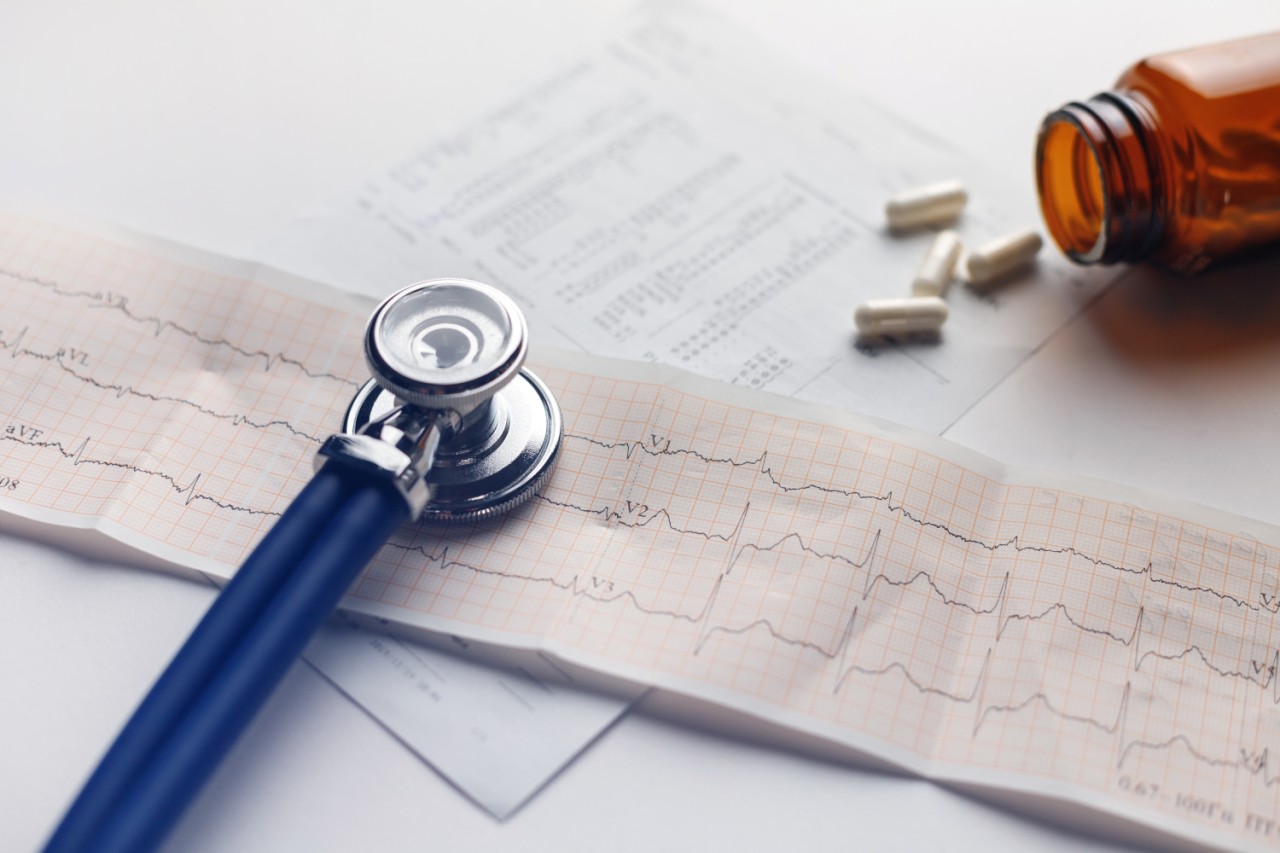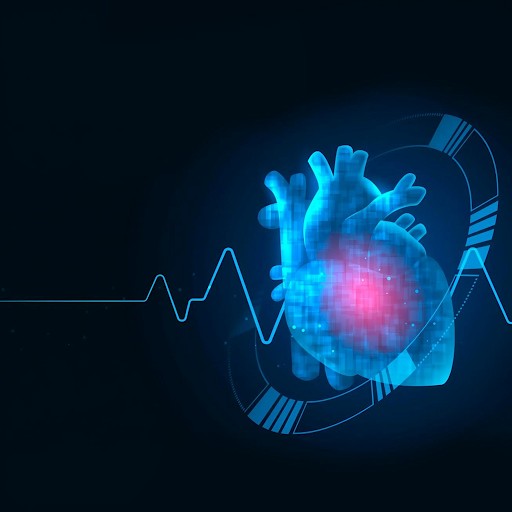Cardiological Care in International Clinics - Innovative Solutions for Heart Health
Modern cardiology is a rapidly evolving field that has long surpassed the boundaries of standard methods for diagnosing and treating cardiovascular diseases. Today, international clinics offer patients not just top-notch service but also the latest innovative solutions based on advanced scientific research, integration of digital technologies, and comprehensive rehabilitation approaches. In an era of globalization and rapid medical advancements, healthcare centers worldwide are actively implementing the latest scientific breakthroughs, providing patients with access to the most effective treatments for heart conditions.

This article will explore key modern directions in cardiological care offered by international clinics. We will delve into innovative diagnostics, minimally invasive surgical interventions, cutting-edge medication strategies, as well as features of rehabilitation and prevention. Additionally, we will analyze the role of digital technologies and telemedicine in helping patients maintain heart health remotely. By the end, you will have a comprehensive understanding of the modern tools and approaches used in leading medical centers worldwide and how they help people regain their quality of life.
Innovative diagnostics of cardiovascular diseases

High-precision imaging
One of the fundamental tasks of cardiology is the accurate diagnosis of heart and vascular conditions. International clinics utilize high-precision imaging methods such as multi-slice computed tomography (CT), magnetic resonance imaging (MRI) of the heart and coronary arteries, as well as 3D echocardiographic studies. These methods enable doctors to examine the heart's anatomy in detail, assess valve functionality, myocardial contractility, the presence of atherosclerotic plaques, and the degree of coronary artery narrowing.
Genetic and biomarker testing
Another innovative approach widely used in foreign clinics is genetic testing and biomarker analysis. DNA analysis helps identify predispositions to various cardiovascular pathologies, including hereditary cardiomyopathies, susceptibility to thrombosis, or arrhythmias. Biomarker analysis, which evaluates specific proteins, hormones, and enzymes, allows for early detection of risks for myocardial infarction or heart failure before symptoms even appear.
Functional stress diagnostics
International clinics frequently employ stress tests (stress echocardiography, treadmill tests, cycle ergometry) in combination with advanced imaging and monitoring techniques. These examinations help uncover hidden ischemic heart disease, assess physical activity tolerance, detect arrhythmias, and determine the optimal treatment plan.
Minimally invasive surgical interventions and modern technologies
Transcatheter valve implantations
One of the most significant breakthroughs in recent years is transcatheter procedures for valve replacement or repair (TAVI – transcatheter aortic valve implantation, TEER – transcatheter edge-to-edge repair of mitral valves). These methods enable surgeries without the traditional wide chest incision, reducing the risk of complications and shortening recovery time. Patients gain access to high-quality cardiac surgical care previously possible only through open-heart procedures.
Robotic surgery
Robotic cardiac surgery systems, utilized in leading medical centers globally, ensure higher precision interventions, minimize trauma, and enhance patient safety. The exceptional accuracy of robot-assisted manipulations significantly shortens postoperative periods, reduces pain, and accelerates recovery. With these technologies, patients can return to normal life as quickly as possible.
Minimally invasive coronary artery procedures
The widespread adoption of stenting, angioplasty, and other methods for removing coronary artery blockages allows for improving heart blood flow without extensive incisions. Bioresorbable stents and drug-coated balloons are increasingly used, providing long-term effects and reducing the need for repeat procedures. Thanks to these technologies, patients with ischemic heart disease receive safer and more effective treatments compared to traditional coronary bypass surgery.
New medication strategies and personalized medicine

Personalized medication selection
One of the critical aspects of modern cardiology is transitioning to personalized medicine. International clinics actively employ pharmacogenetic testing to select optimal medications, considering the patient’s unique genetic characteristics. This approach enhances therapy effectiveness, minimizes side effects, and achieves more stable results.
New drug classes
Modern pharmacology offers innovative drugs aimed at reducing “bad” cholesterol (LDL), regulating blood pressure, and preventing heart failure. The use of PCSK9 inhibitors, monoclonal antibody-based therapies, and advanced diuretics helps control risk factors more effectively and improves patient outcomes with chronic heart diseases.
Comprehensive risk factor management
Leading international clinics emphasize the prevention of cardiovascular diseases. Patients are provided with individualized programs for managing blood pressure, lipid levels, and blood sugar. Support from dietitians, psychologists, and physical therapy specialists helps patients develop healthy habits and avoid recurrent cardiovascular events.
Rehabilitation and long-term monitoring: A comprehensive approach

Cardiac rehabilitation programs
Rehabilitation after heart surgeries or a myocardial infarction is a crucial element of modern treatment approaches. International clinics offer comprehensive rehabilitation programs, including tailored diets, physical exercises, psychological support, and education in self-monitoring health skills. This approach helps patients quickly restore physical fitness, regain full life activity, and reduce the risk of recurrent heart problems.
Multidisciplinary specialist teams
Optimal heart care is impossible without the coordinated efforts of multidisciplinary teams. In international clinics, patients are monitored by cardiologists, cardiac surgeons, rehabilitation therapists, dietitians, endocrinologists, and psychotherapists. Such a team approach ensures a comprehensive evaluation of the patient’s health and the development of an individualized treatment and prevention strategy.
Long-term monitoring and remote supervision
After discharge, patients are offered long-term follow-up through telemedicine and wearable devices. Smartwatches, fitness trackers, and specialized sensors for monitoring heart rhythm allow medical personnel to evaluate a patient’s condition, adjust treatment if necessary, and promptly identify dangerous changes in cardiovascular system function.
Digital technologies, artificial intelligence, and telemedicine

Artificial intelligence in diagnostics and treatment
Artificial intelligence (AI) is being actively integrated into cardiology to help doctors analyze large volumes of medical data and identify hidden patterns. Machine learning algorithms can predict the risk of heart attacks, strokes, or heart failure, suggesting the most effective prevention strategies. Leading international clinics use AI to improve diagnostic accuracy, optimize drug prescriptions, and reduce the workload on medical staff.
Telemedicine and remote consultations
The spread of telemedicine has made high-quality cardiac care more accessible. Patients worldwide can consult leading specialists, obtain second opinions, clarify treatments, or undergo remote diagnostics. This is especially important for people who cannot regularly visit a doctor in person and those seeking assistance from top cardiologists globally without leaving their country.
Patient apps and platforms
Digital apps developed specifically for patients with cardiovascular diseases help monitor blood pressure, heart rate, activity, sleep, and nutrition. Such tools enable patients to establish more effective self-monitoring strategies for heart health and maintain constant communication with their doctors. Thus, telemedicine and digital solutions become integral to modern cardiology, making treatment and prevention more convenient and transparent.
International medical tourism: Choosing clinics abroad
All described innovations and highly qualified personnel are available to patients not only within one country. International medical tourism provides access to advanced cardiological care abroad, where technological standards and services often exceed local healthcare norms. Many patients choose foreign centers with global reputations for complex surgeries, consultations with leading experts, or exclusive innovative treatment methods.
Moreover, international clinics offer a wide range of support services, including language assistance, travel arrangements, transfers, and visa support. Personalized approaches, no waiting lines, and comfortable conditions make cardiac care abroad an attractive solution for those seeking the highest treatment quality.
The future of cardiology: Sustainable development and new horizons
Modern cardiology in international clinics is not just about treating heart diseases but a holistic approach to health. From precise diagnostics and minimally invasive surgeries to personalized pharmacotherapy and high-tech rehabilitation, all elements of this complex process aim to improve the patient’s quality of life. The future of cardiology lies in further technological advancements: the use of stem cells, gene therapies, and implantable devices for monitoring and restoring heart function.
An integral aspect of development will be global collaboration among clinics, research institutes, and technology companies. Sharing knowledge, data, and best practices will accelerate progress and make cardiological care even more effective, accessible, and safe.
Conclusion
Cardiological care in international clinics represents a synergy of innovations, high professionalism, and a patient-centered approach. Recent years have witnessed a revolution in the diagnosis, treatment, and rehabilitation of cardiovascular diseases. Leading medical centers worldwide provide access to the latest methodologies, modern drugs, and digital solutions that help patients not only restore heart health but also maintain it for years to come.
If you are considering obtaining top-level cardiological care, international clinics and specialized medical tourism agencies can help you choose the optimal option, arrange your trip, and ensure follow-up care. The world of modern cardiology is open to everyone who values quality, safety, and innovation. Take the first step towards a healthy heart and longevity by embracing the achievements of leading international medical centers.

